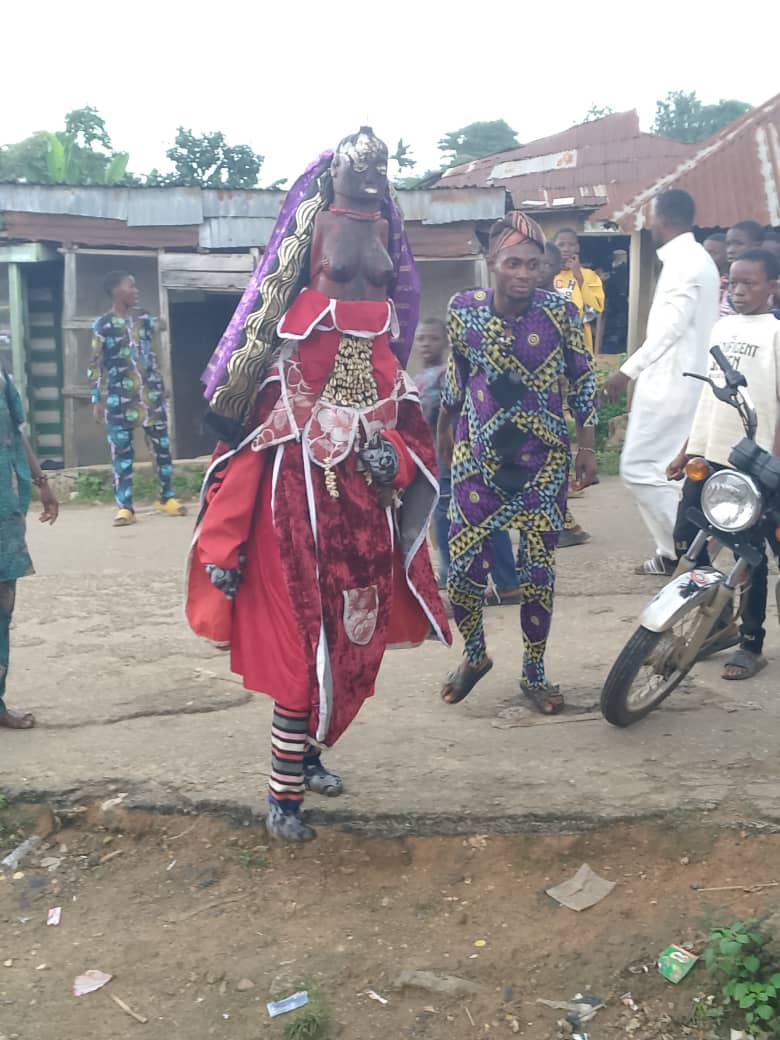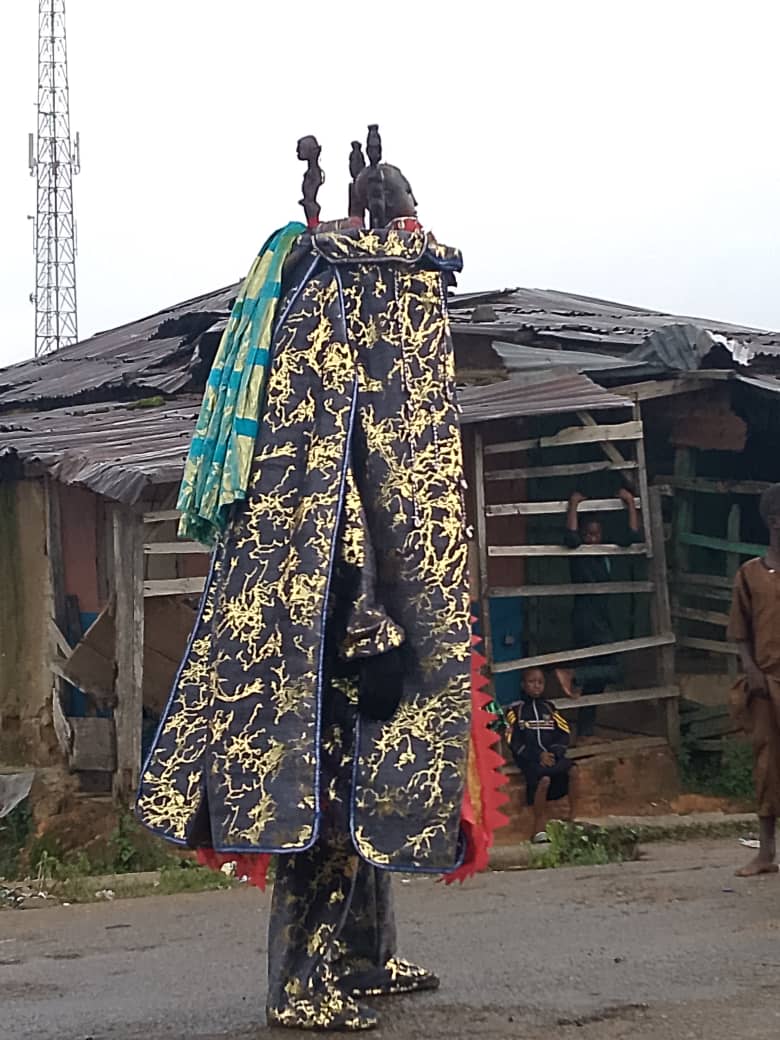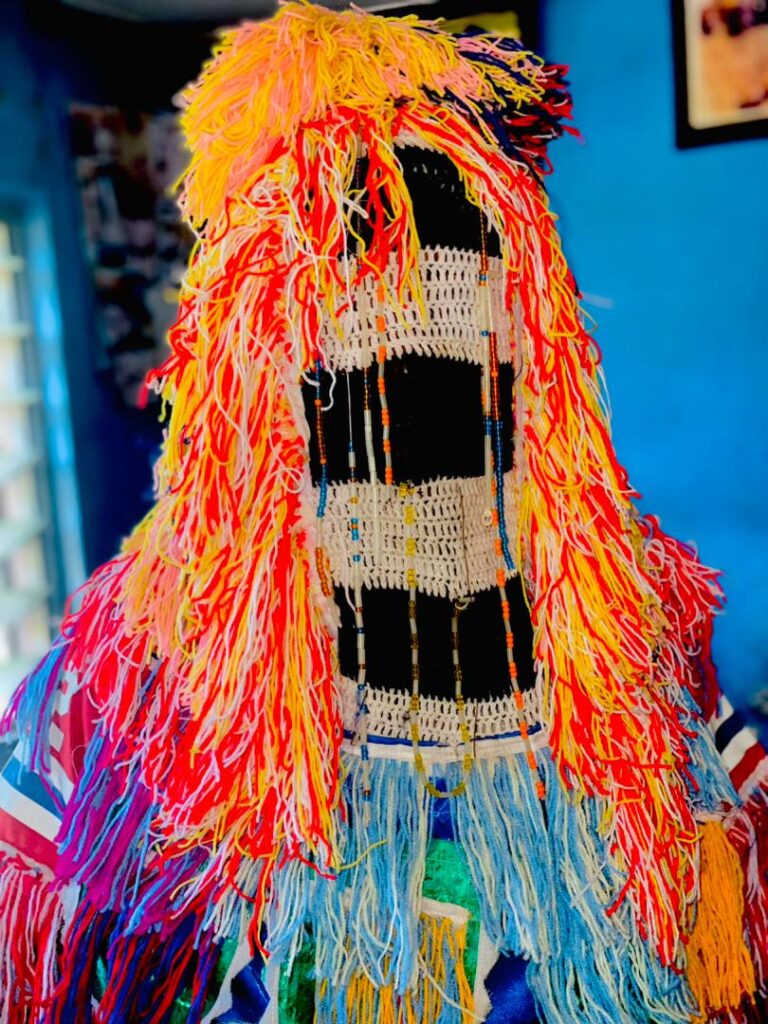By Peter Omopo
Ifetedo, Osun State — August 5, 2025
For fourteen unforgettable days, the ancient town of Ifetedo in Osun State pulsed with rhythm, colour, and spiritual reverence as it hosted the 2025 edition of its iconic Egúngún Festival — a celebration that remains one of the purest expressions of Yoruba ancestral veneration and community identity.
The festival kicked off with pomp and spiritual symbolism on Saturday, July 27, drawing crowds from across Yorubaland and beyond. From the first drumbeat to the final swirling masquerade dance yesterday, Ifetedo Kingdom once again demonstrated why it holds a prestigious place in the cultural calendar of southwestern Nigeria.

Opening Ceremonies and Ancestral Awakening
The opening day was marked by rituals at the family shrines, where ancestral masks were consecrated and prayers offered for protection, prosperity, and peace. Indigenous priests, known as Alágba, invoked the spirits of the ancestors, calling them forth to bless the land and commune with the living. Sacred drumming filled the air as elders recounted oral histories and children watched wide-eyed, learning the traditions that have defined Ifetedo for generations.
The streets came alive with the rhythmic thunder of Bàtá, Gángan, and Ìyá-ìlù drums, heralding the arrival of the Egúngún masqueraders — towering, masked figures cloaked in multi-coloured fabrics, often embroidered with shimmering sequins and symbolic motifs. Each Egúngún represented a specific lineage, embodying the spirit of a departed ancestor returning to visit the living.

Days of Dance, Drama, and Display
As the festival unfolded, the town was transformed into a living museum of Yoruba heritage. Daily processions featured various Egúngún troupes, each more captivating than the last — some playful, others fierce, many majestic. Some danced in silence; others issued booming oracular warnings, poetic incantations, or blessings.
One of the most admired figures this year was Egúngún Aláré, renowned for its grace and spiritual intensity. Its appearance, accompanied by haunting chants and sudden acrobatic flourishes, drew gasps and reverent bows from the audience. Another crowd favourite was Egúngún Ajọsọ, known for engaging theatrics and satirical mimicry, playfully calling out members of the community in coded proverbs and folk humour.
The festival was not just a spiritual affair but also a grand social carnival. Markets bustled, palms clinked, music poured from every corner, and the young and old dressed in their finest traditional attires. For the youth, it was a time of rekindled pride. For the elders, a reaffirmation of identity. For all, it was a homecoming of spirit and blood.
The Grand Finale: A Communion of Realms
Yesterday’s finale was nothing short of a dramatic crescendo. In the town square, thousands gathered to witness the farewell parade of the major masquerades. The Òjé guild — custodians of the Egúngún tradition — led a solemn rite, bidding the ancestors safe return to the spirit realm.
The final dance, performed by Egúngún Olúwẹ̀rẹ̀, signified the closing of the spiritual portal between the living and the dead. The atmosphere was electric yet heavy with awe — the kind of reverent silence that follows thunder.
As the sun dipped beyond the hills of Ifetedo, the people exhaled in satisfaction. The spirits had come. They had danced. They had blessed. And now they had gone — for now.
Ìgbájà Awaits: The Final Act in Fifteen Days
But the story isn’t quite over.
In fifteen days, the ritual Ìgbájà will take place — the symbolic cleansing and final dismissal of the ancestral spirits. This rite is critical: it ensures the peaceful departure of the Egúngún and the sealing of blessings they bestowed. It is also an opportunity for the community to express gratitude and spiritual closure.
Many are already preparing. New clothes are being sewn. Drummers are rehearsing. The spirits may be out of sight, but they are not out of mind.
A Festival Beyond Folklore
The 2025 Egúngún Festival in Ifetedo was more than just a cultural performance; it was a living, breathing affirmation of Yoruba spirituality, history, and collective memory. In an age where globalisation and modernity threaten indigenous practices, Ifetedo stood firm — a proud custodian of a heritage that continues to enthrall, educate, and elevate.
As we await the Ìgbájà, the people of Ifetedo know this much: when the drums speak, the ancestors answer. And when the ancestors dance, a people remember who they are.

